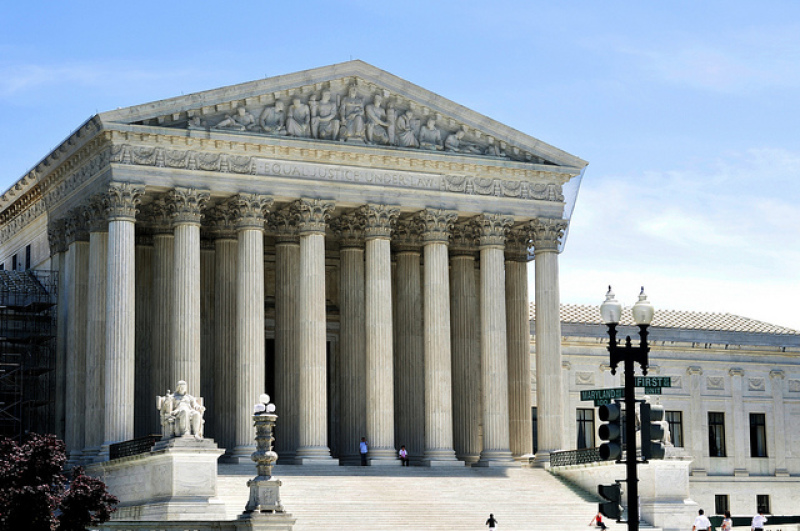
"How does one prove what's in somebody else's mind?"
This question, which was raised by Justice Ruth Bader Ginsburg during the oral arguments for the case of a Pennsylvania man, has been in the minds of the justices, free speech advocates, and possibly virtually everybody else who uses his or her social media account to vent about personal matters.
In addition, the justices have been grappling with the burden of potentially redefining the public's perception of free speech with respect to its scope and limitation on the internet, specifically on social networking sites.
This case also brought into question the coverage of the First Amendment in terms of the protection it extends to those who appear to be crossing the very thin line between artistic self-expression and dangerous threats to society.
Earlier this year, Anthony Douglas Elonis was convicted for threatening to murder his ex-wife in cold blood, go on a shooting rampage at a kindergarten school and murder a federal agent. The alleged threats, which he composed in the form of rap lyrics, were publicly posted on his Facebook page under the pseudonym "Tone Dougie".
Elonis' troubles that stemmed from his threatening Facebook posts began in 2010 when he posted a Halloween picture with a female co-worker with him holding a toy knife against her neck. He then captioned the photo with "I wish". Upon viewing the post, Elonis' supervisor dismissed him from work as he deemed the picture and its caption as threatening.
Elonis' then allegedly issued threats against his former employer, which led to a home visit from an FBI agent. This inspired the Pennsylvania man to compose a rap song about the visit.
"Little agent lady stood so close, took all the strength I had not to turn the bitch ghost. Pull my knife, flick my wrist and slit her throat," Elonis posted in his Facebook page.
Prior to getting fired from his job, Tara Elonis, his now ex-wife, filed for a divorce and took their children with her. The situation prompted Elonis to share some of his original rap lyrics about his anger and frustration over his wife's decisions on Facebook.
"There's one way to love you but a thousand ways to kill you. I'm not going to rest until your body is a mess, soaked in blood and dying from all the little cuts," he posted.
In 2011, federal courts subsequently found Elonis guilty of five counts of conveying interstate threats to injure a person. Since then, his case was appealed continuously until it finally reached the Supreme Court.
Elonis' lawyer claimed that these posts were only made as a form of art, which his client took advantage of to express himself while going through a tumultuous phase in his life. This argument, however, failed to convince Justice Samuel A. Alito Jr.
"This sounds like a road map for threatening a spouse and getting away with it," the justice said. "So you put it in rhyme and you put some stuff about the Internet on it and you say, 'I'm an aspiring rap artist.' And so then you are free from prosecution," he added.
In determining whether Elonis' posts could be considered as "true threats" to inflict harm on another person, the Supreme Court turned to a 2003 landmark ruling -- Virginia v. Black. In this particular case, the Supreme Court held that no actual intent is necessary for the speaker to be convicted of the crime. This is because the rationale behind the law lies in the protection against the fear of violence granted to the potential victims.
Justice Ginsburg summed up the dilemma caused by the issue. "This case, the standard was would a reasonable person think that the words would put someone in fear, and reasonable people can make that judgment. But how would the government prove whether this threat in the mind of the threatener (sic) was genuine?"



















